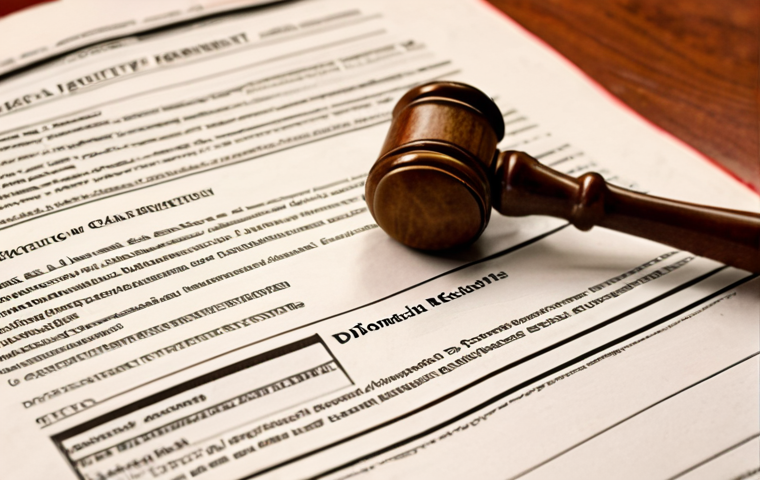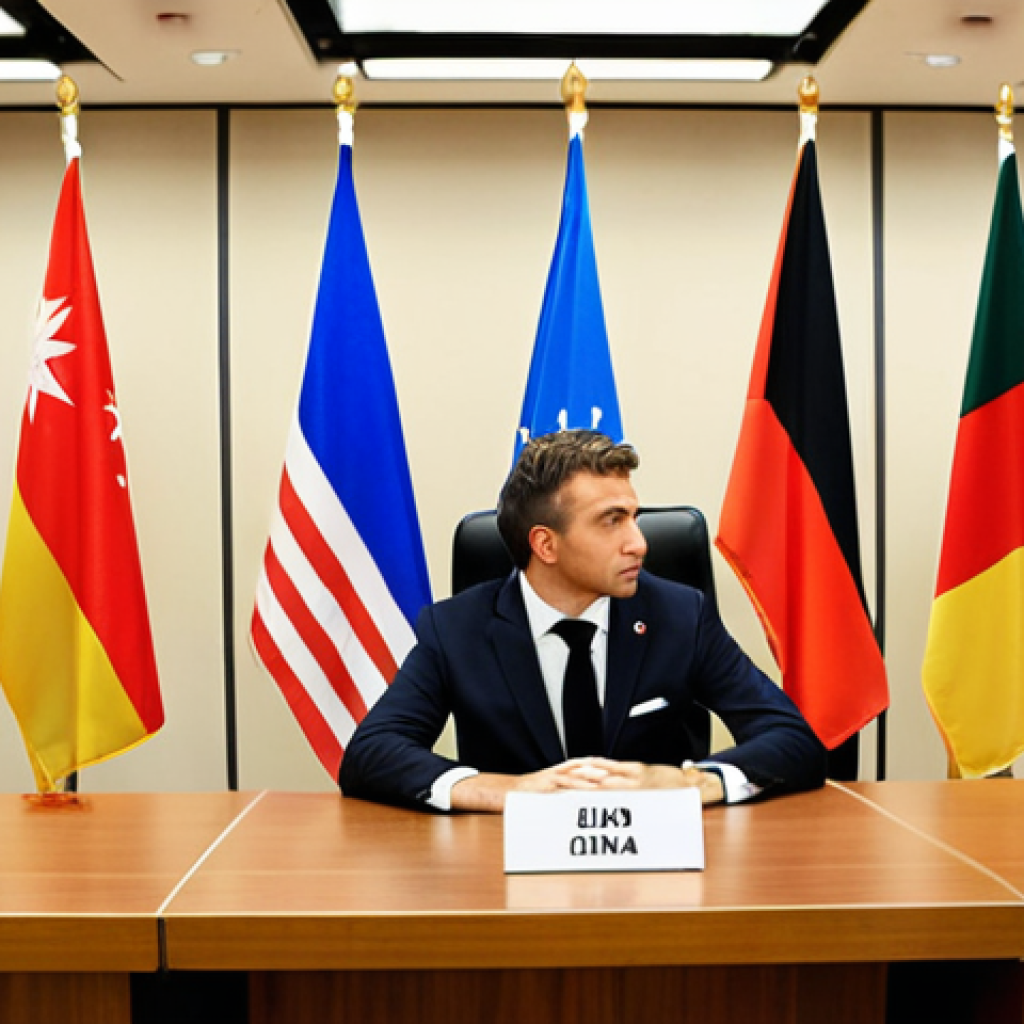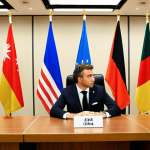Imagine a world where diplomats, representing their nations abroad, could potentially face prosecution under the laws of the host country. That’s where the concept of diplomatic immunity comes in.
It’s a cornerstone of international relations, ensuring that diplomats can perform their duties without fear of coercion or harassment. Think of it as a safeguard, allowing open communication and negotiation between nations, even when disagreements arise.
It’s a complex system, balancing the need for justice with the importance of maintaining peaceful relations. Personally, I’ve always found it fascinating how this principle shapes global interactions.
Let’s delve into the details in the article below!
Diplomatic immunity, at its core, is about fostering stable international relations. It’s not about letting diplomats get away with anything, but rather about ensuring they can do their jobs without fear of political pressure or legal entanglement.
It allows them to speak freely, represent their country’s interests, and negotiate on equal footing. From my understanding, it’s the grease that keeps the wheels of international diplomacy turning.
Decoding the Diplomatic Shield: Beyond Just Avoiding Parking Tickets

Diplomatic immunity is often misunderstood as a “get out of jail free” card. The reality is far more nuanced. It’s a comprehensive framework designed to protect diplomatic functions, not individual misconduct.
I remember reading about a case where a diplomat was accused of shoplifting – the resulting public outcry highlighted the tension between the principle of immunity and the demand for accountability.
The critical point is that immunity primarily aims to prevent host countries from using their legal systems to exert undue influence on diplomats or their missions.
Understanding the Scope of Protection
Diplomatic immunity covers a range of protections. These include inviolability of the diplomat’s person, residence, and property, meaning they cannot be searched, seized, or entered without the diplomat’s consent.
It also provides immunity from criminal, civil, and administrative jurisdiction in the host country, with some exceptions for private commercial activities or property ownership unrelated to their diplomatic function.
I’ve often wondered what it must feel like to live under such a different set of rules, almost like inhabiting a legal bubble.
The Fine Line: Immunity vs. Impunity
It’s crucial to distinguish between immunity and impunity. Immunity is a legal protection, while impunity implies exemption from punishment for wrongdoing.
Diplomats are not above the law, but rather subject to a different set of rules designed to ensure their ability to perform their duties effectively. If a diplomat commits a serious crime, the sending state has a responsibility to waive their immunity or prosecute them in their own country.
I believe this balance is vital for maintaining the integrity of the diplomatic system.
The Vienna Convention: The Bible of Diplomatic Conduct
The Vienna Convention on Diplomatic Relations of 1961 is the cornerstone of modern diplomatic law. It codifies the principles of diplomatic immunity and provides a comprehensive framework for diplomatic relations between states.
This convention has been ratified by almost every country in the world, making it one of the most universally accepted treaties in international law. I found it fascinating how this document provides clear guidelines on issues like the appointment of diplomats, the functions of diplomatic missions, and the privileges and immunities to be enjoyed by diplomats.
Article 31: The Heart of Immunity
Article 31 of the Vienna Convention is the core provision on diplomatic immunity. It spells out the specific immunities enjoyed by diplomats, including immunity from criminal, civil, and administrative jurisdiction.
However, it also recognizes certain exceptions, such as actions relating to private immovable property located in the host state, actions relating to succession in which the diplomat is involved as a private person, and actions relating to any professional or commercial activity exercised by the diplomat in the host state outside their official functions.
I always think about the careful balance this article strikes.
Beyond the Convention: Customary International Law
While the Vienna Convention is the primary source of diplomatic law, customary international law also plays a role. Customary law refers to long-standing practices that have become accepted as legally binding obligations.
Some aspects of diplomatic immunity, such as the inviolability of diplomatic pouches, are based on customary law rather than the Vienna Convention. In my view, this shows how diplomatic immunity is not just a set of rules, but also a reflection of deeply ingrained norms and expectations in international relations.
When Immunity Hits a Snag: Controversies and Challenges
Despite its importance, diplomatic immunity is not without its controversies and challenges. Cases involving alleged criminal activity by diplomats can spark public outrage and strain relations between states.
The challenge lies in balancing the need to uphold the principle of immunity with the imperative to ensure accountability and justice. I once saw a news report about a diplomat involved in a hit-and-run accident, and the public outcry was immense.
Waiver of Immunity: The Ultimate Solution?
The sending state has the power to waive the immunity of its diplomats, allowing them to be prosecuted in the host country. This is often seen as the ultimate solution when a diplomat is accused of serious wrongdoing.
However, waivers are not always granted, as the sending state may have concerns about the fairness of the host country’s legal system or the potential for political manipulation.
I’ve always considered that the decision to waive immunity is a delicate one, with significant implications for both the individual diplomat and the relations between the two states.
The Role of Persona Non Grata
If a sending state refuses to waive immunity, the host country can declare the diplomat persona non grata, effectively expelling them from the country.
This is a common diplomatic tool used to signal disapproval of a diplomat’s conduct or actions. While it does not result in criminal prosecution, it can have a significant impact on the diplomat’s career and reputation.
It also serves as a strong message to the sending state that the host country is taking the matter seriously. I see it as a diplomatic slap on the wrist, with real-world consequences.
Diplomatic Immunity in Practice: Real-World Examples
Diplomatic immunity isn’t just a theoretical concept – it plays out in real-world scenarios every day. From routine interactions between diplomats and host country officials to high-stakes negotiations and crisis situations, the principles of diplomatic immunity shape the dynamics of international relations.
I’ve read countless stories about how immunity has helped defuse tense situations and facilitate communication between adversaries.
Protecting Communication Channels
One of the most important functions of diplomatic immunity is to protect communication channels between states. By ensuring that diplomats can communicate freely and securely with their home governments, immunity helps to prevent misunderstandings and miscalculations that could escalate into conflict.
I remember hearing about a case where a diplomat was able to relay critical information about an impending attack, thanks to the protection afforded by their immunity.
Facilitating Negotiations
Diplomatic immunity also plays a crucial role in facilitating negotiations between states. By providing a safe and neutral environment for diplomats to meet and discuss sensitive issues, immunity helps to build trust and confidence, paving the way for peaceful resolutions.
I believe that without immunity, many of the diplomatic breakthroughs we’ve seen throughout history would not have been possible.
The Future of Diplomatic Immunity: Adapting to a Changing World
As the world becomes increasingly interconnected and complex, the challenges facing diplomatic immunity are also evolving. From cyberattacks and espionage to transnational crime and terrorism, new threats require innovative approaches to protecting diplomatic functions and ensuring accountability.
It’s clear to me that the future of diplomatic immunity will depend on the ability of states to adapt the existing framework to meet these new challenges.
Balancing Security and Immunity
One of the key challenges is to balance the need for security with the protection of diplomatic immunity. Host countries have a responsibility to protect diplomatic missions and personnel from harm, but they must do so in a way that respects the principles of immunity and does not unduly interfere with diplomatic functions.
I think about the tightrope that host governments must walk, constantly weighing security concerns against diplomatic obligations.
Strengthening Accountability Mechanisms
Another important area for improvement is strengthening accountability mechanisms for diplomats who abuse their privileges. This could involve measures such as enhancing the transparency of waiver procedures, promoting the use of alternative dispute resolution mechanisms, and developing clearer guidelines on the types of conduct that warrant a waiver of immunity.
I believe that enhancing accountability will be essential for preserving the legitimacy and credibility of diplomatic immunity in the long run. Here is a table summarizing key aspects of diplomatic immunity:
| Aspect | Description | Purpose |
|---|---|---|
| Inviolability | Protection of diplomat’s person, residence, and property | Ensures safety and security of diplomats |
| Jurisdictional Immunity | Immunity from criminal, civil, and administrative jurisdiction | Allows diplomats to perform duties without fear of legal harassment |
| Waiver of Immunity | Sending state can waive immunity, allowing prosecution in host country | Ensures accountability for serious wrongdoing |
| Persona Non Grata | Host country can expel a diplomat | Signals disapproval of diplomat’s conduct |
Common Misconceptions About Diplomatic Immunity
There are a lot of misunderstandings floating around about diplomatic immunity. It’s not a free pass to break the law, and it certainly doesn’t mean diplomats are above reproach.
A common misconception is that diplomats can commit any crime they want and get away with it. The truth is far more complex, with various checks and balances in place.
I’ve found that clarifying these misconceptions is crucial for fostering a more informed public discourse on this important topic.
It’s Not a License to Break the Law
Let’s be clear: diplomatic immunity is not a license to break the law. Diplomats are expected to respect the laws and regulations of the host country, and they can face consequences for violating them.
The difference is that those consequences may not involve prosecution in the host country’s courts. I believe this distinction is vital for understanding the true nature of diplomatic immunity.
It Doesn’t Mean Diplomats Are Above Reproach
Just because a diplomat enjoys immunity from prosecution doesn’t mean they are above reproach. Diplomats can still face diplomatic consequences for misconduct, such as being declared persona non grata or having their immunity waived by their home country.
I’ve seen cases where diplomats have been recalled or even dismissed from their positions due to inappropriate behavior.
The Ethical Considerations of Diplomatic Immunity
Beyond the legal framework, there are also important ethical considerations associated with diplomatic immunity. How should diplomats behave in a host country?
What are their responsibilities to the local community? And how should they balance their duties to their home country with their obligations to the host country?
These are complex questions with no easy answers. I always consider the moral compass that diplomats must navigate while operating under the umbrella of immunity.
Responsibilities to the Host Country
Diplomats have a responsibility to respect the laws and customs of the host country, even if they disagree with them. They should also avoid engaging in activities that could be seen as interfering in the host country’s internal affairs.
I believe that maintaining a respectful and professional demeanor is essential for building trust and fostering positive relations.
Balancing Duties and Obligations
Diplomats often face difficult choices when it comes to balancing their duties to their home country with their obligations to the host country. For example, they may be asked to gather intelligence or promote their country’s interests in ways that could be seen as undermining the host country’s sovereignty.
I think that navigating these ethical dilemmas requires a high degree of judgment and integrity. Diplomatic immunity, at its core, is about fostering stable international relations.
It’s not about letting diplomats get away with anything, but rather about ensuring they can do their jobs without fear of political pressure or legal entanglement.
It allows them to speak freely, represent their country’s interests, and negotiate on equal footing. From my understanding, it’s the grease that keeps the wheels of international diplomacy turning.
Decoding the Diplomatic Shield: Beyond Just Avoiding Parking Tickets
Diplomatic immunity is often misunderstood as a “get out of jail free” card. The reality is far more nuanced. It’s a comprehensive framework designed to protect diplomatic functions, not individual misconduct.
I remember reading about a case where a diplomat was accused of shoplifting – the resulting public outcry highlighted the tension between the principle of immunity and the demand for accountability.
The critical point is that immunity primarily aims to prevent host countries from using their legal systems to exert undue influence on diplomats or their missions.
Understanding the Scope of Protection
Diplomatic immunity covers a range of protections. These include inviolability of the diplomat’s person, residence, and property, meaning they cannot be searched, seized, or entered without the diplomat’s consent.
It also provides immunity from criminal, civil, and administrative jurisdiction in the host country, with some exceptions for private commercial activities or property ownership unrelated to their diplomatic function.
I’ve often wondered what it must feel like to live under such a different set of rules, almost like inhabiting a legal bubble.
The Fine Line: Immunity vs. Impunity
It’s crucial to distinguish between immunity and impunity. Immunity is a legal protection, while impunity implies exemption from punishment for wrongdoing.
Diplomats are not above the law, but rather subject to a different set of rules designed to ensure their ability to perform their duties effectively. If a diplomat commits a serious crime, the sending state has a responsibility to waive their immunity or prosecute them in their own country.
I believe this balance is vital for maintaining the integrity of the diplomatic system.
The Vienna Convention: The Bible of Diplomatic Conduct
The Vienna Convention on Diplomatic Relations of 1961 is the cornerstone of modern diplomatic law. It codifies the principles of diplomatic immunity and provides a comprehensive framework for diplomatic relations between states.
This convention has been ratified by almost every country in the world, making it one of the most universally accepted treaties in international law. I found it fascinating how this document provides clear guidelines on issues like the appointment of diplomats, the functions of diplomatic missions, and the privileges and immunities to be enjoyed by diplomats.
Article 31: The Heart of Immunity
Article 31 of the Vienna Convention is the core provision on diplomatic immunity. It spells out the specific immunities enjoyed by diplomats, including immunity from criminal, civil, and administrative jurisdiction.
However, it also recognizes certain exceptions, such as actions relating to private immovable property located in the host state, actions relating to succession in which the diplomat is involved as a private person, and actions relating to any professional or commercial activity exercised by the diplomat in the host state outside their official functions.
I always think about the careful balance this article strikes.
Beyond the Convention: Customary International Law
While the Vienna Convention is the primary source of diplomatic law, customary international law also plays a role. Customary law refers to long-standing practices that have become accepted as legally binding obligations.
Some aspects of diplomatic immunity, such as the inviolability of diplomatic pouches, are based on customary law rather than the Vienna Convention. In my view, this shows how diplomatic immunity is not just a set of rules, but also a reflection of deeply ingrained norms and expectations in international relations.
When Immunity Hits a Snag: Controversies and Challenges
Despite its importance, diplomatic immunity is not without its controversies and challenges. Cases involving alleged criminal activity by diplomats can spark public outrage and strain relations between states.
The challenge lies in balancing the need to uphold the principle of immunity with the imperative to ensure accountability and justice. I once saw a news report about a diplomat involved in a hit-and-run accident, and the public outcry was immense.
Waiver of Immunity: The Ultimate Solution?
The sending state has the power to waive the immunity of its diplomats, allowing them to be prosecuted in the host country. This is often seen as the ultimate solution when a diplomat is accused of serious wrongdoing.
However, waivers are not always granted, as the sending state may have concerns about the fairness of the host country’s legal system or the potential for political manipulation.
I’ve always considered that the decision to waive immunity is a delicate one, with significant implications for both the individual diplomat and the relations between the two states.
The Role of Persona Non Grata
If a sending state refuses to waive immunity, the host country can declare the diplomat persona non grata, effectively expelling them from the country.
This is a common diplomatic tool used to signal disapproval of a diplomat’s conduct or actions. While it does not result in criminal prosecution, it can have a significant impact on the diplomat’s career and reputation.
It also serves as a strong message to the sending state that the host country is taking the matter seriously. I see it as a diplomatic slap on the wrist, with real-world consequences.
Diplomatic Immunity in Practice: Real-World Examples
Diplomatic immunity isn’t just a theoretical concept – it plays out in real-world scenarios every day. From routine interactions between diplomats and host country officials to high-stakes negotiations and crisis situations, the principles of diplomatic immunity shape the dynamics of international relations.
I’ve read countless stories about how immunity has helped defuse tense situations and facilitate communication between adversaries.
Protecting Communication Channels
One of the most important functions of diplomatic immunity is to protect communication channels between states. By ensuring that diplomats can communicate freely and securely with their home governments, immunity helps to prevent misunderstandings and miscalculations that could escalate into conflict.
I remember hearing about a case where a diplomat was able to relay critical information about an impending attack, thanks to the protection afforded by their immunity.
Facilitating Negotiations
Diplomatic immunity also plays a crucial role in facilitating negotiations between states. By providing a safe and neutral environment for diplomats to meet and discuss sensitive issues, immunity helps to build trust and confidence, paving the way for peaceful resolutions.
I believe that without immunity, many of the diplomatic breakthroughs we’ve seen throughout history would not have been possible.
The Future of Diplomatic Immunity: Adapting to a Changing World
As the world becomes increasingly interconnected and complex, the challenges facing diplomatic immunity are also evolving. From cyberattacks and espionage to transnational crime and terrorism, new threats require innovative approaches to protecting diplomatic functions and ensuring accountability.
It’s clear to me that the future of diplomatic immunity will depend on the ability of states to adapt the existing framework to meet these new challenges.
Balancing Security and Immunity
One of the key challenges is to balance the need for security with the protection of diplomatic immunity. Host countries have a responsibility to protect diplomatic missions and personnel from harm, but they must do so in a way that respects the principles of immunity and does not unduly interfere with diplomatic functions.
I think about the tightrope that host governments must walk, constantly weighing security concerns against diplomatic obligations.
Strengthening Accountability Mechanisms
Another important area for improvement is strengthening accountability mechanisms for diplomats who abuse their privileges. This could involve measures such as enhancing the transparency of waiver procedures, promoting the use of alternative dispute resolution mechanisms, and developing clearer guidelines on the types of conduct that warrant a waiver of immunity.
I believe that enhancing accountability will be essential for preserving the legitimacy and credibility of diplomatic immunity in the long run. Here is a table summarizing key aspects of diplomatic immunity:
| Aspect | Description | Purpose |
|---|---|---|
| Inviolability | Protection of diplomat’s person, residence, and property | Ensures safety and security of diplomats |
| Jurisdictional Immunity | Immunity from criminal, civil, and administrative jurisdiction | Allows diplomats to perform duties without fear of legal harassment |
| Waiver of Immunity | Sending state can waive immunity, allowing prosecution in host country | Ensures accountability for serious wrongdoing |
| Persona Non Grata | Host country can expel a diplomat | Signals disapproval of diplomat’s conduct |
Common Misconceptions About Diplomatic Immunity
There are a lot of misunderstandings floating around about diplomatic immunity. It’s not a free pass to break the law, and it certainly doesn’t mean diplomats are above reproach.
A common misconception is that diplomats can commit any crime they want and get away with it. The truth is far more complex, with various checks and balances in place.
I’ve found that clarifying these misconceptions is crucial for fostering a more informed public discourse on this important topic.
It’s Not a License to Break the Law
Let’s be clear: diplomatic immunity is not a license to break the law. Diplomats are expected to respect the laws and regulations of the host country, and they can face consequences for violating them.
The difference is that those consequences may not involve prosecution in the host country’s courts. I believe this distinction is vital for understanding the true nature of diplomatic immunity.
It Doesn’t Mean Diplomats Are Above Reproach
Just because a diplomat enjoys immunity from prosecution doesn’t mean they are above reproach. Diplomats can still face diplomatic consequences for misconduct, such as being declared persona non grata or having their immunity waived by their home country.
I’ve seen cases where diplomats have been recalled or even dismissed from their positions due to inappropriate behavior.
The Ethical Considerations of Diplomatic Immunity
Beyond the legal framework, there are also important ethical considerations associated with diplomatic immunity. How should diplomats behave in a host country?
What are their responsibilities to the local community? And how should they balance their duties to their home country with their obligations to the host country?
These are complex questions with no easy answers. I always consider the moral compass that diplomats must navigate while operating under the umbrella of immunity.
Responsibilities to the Host Country
Diplomats have a responsibility to respect the laws and customs of the host country, even if they disagree with them. They should also avoid engaging in activities that could be seen as interfering in the host country’s internal affairs.
I believe that maintaining a respectful and professional demeanor is essential for building trust and fostering positive relations.
Balancing Duties and Obligations
Diplomats often face difficult choices when it comes to balancing their duties to their home country with their obligations to the host country. For example, they may be asked to gather intelligence or promote their country’s interests in ways that could be seen as undermining the host country’s sovereignty.
I think that navigating these ethical dilemmas requires a high degree of judgment and integrity.
Concluding Thoughts
Diplomatic immunity is a complex and often misunderstood concept, but it’s crucial for maintaining stable international relations. It’s not about shielding individuals from accountability, but rather about ensuring diplomats can effectively carry out their duties. As the world evolves, so too must our understanding and application of these principles to navigate the challenges of modern diplomacy.
Useful Information to Know
1. Visa Requirements: Diplomats typically require a special type of visa, often referred to as a diplomatic visa, to enter and reside in a host country. These visas are different from tourist or business visas and are issued based on their diplomatic status.
2. Driving Privileges: While diplomatic immunity provides protection from certain traffic laws, diplomats are generally expected to adhere to local traffic regulations. However, enforcement can be challenging, and serious violations can lead to diplomatic repercussions.
3. Tax Exemptions: Diplomats are often exempt from certain taxes in the host country, such as income tax and sales tax. These exemptions are intended to prevent double taxation and ensure that diplomats are not financially burdened by their overseas postings.
4. Education for Children: Diplomatic families often face challenges in ensuring quality education for their children while serving abroad. International schools, homeschooling, and online learning are common options, but access and affordability can vary greatly depending on the location.
5. Cultural Adaptation: Living and working in a foreign country requires a significant degree of cultural adaptation. Diplomats and their families often undergo cultural sensitivity training to help them navigate cultural differences and avoid misunderstandings.
Key Takeaways
Diplomatic immunity is designed to protect diplomatic functions, not individual misconduct.
The Vienna Convention on Diplomatic Relations is the primary source of diplomatic law.
Sending states can waive immunity, and host countries can declare diplomats persona non grata.
Ethical considerations and responsibilities to the host country are crucial for diplomats.
Misconceptions about diplomatic immunity are common and need to be clarified.
Frequently Asked Questions (FAQ) 📖
Q: Can a diplomat really get away with anything just because of diplomatic immunity?
A: Not exactly. Diplomatic immunity isn’t a “get out of jail free” card. It primarily protects diplomats from being subject to the host country’s legal jurisdiction while they’re carrying out their official duties.
If a diplomat commits a serious crime, like murder, the host country can request the diplomat’s home country to waive their immunity. If the home country refuses, the host country can declare the diplomat persona non grata and expel them.
I’ve read stories where countries have even severed diplomatic ties over such incidents.
Q: What’s the point of diplomatic immunity if it seems to let some bad behavior slide? Why not just hold everyone accountable equally?
A: I get why it seems unfair. But the idea is that without immunity, diplomats might be afraid to do their jobs effectively, especially if they’re representing a country that’s not on the best terms with the host country.
They could be vulnerable to trumped-up charges or political harassment. Imagine trying to negotiate a peace treaty if you were constantly worried about being arrested on some minor infraction!
Diplomatic immunity is meant to ensure open lines of communication and prevent countries from retaliating against each other’s diplomats. It’s a bit like mutually assured destruction, but for international relations.
It doesn’t always seem perfect, but it’s a necessary evil in many cases.
Q: How does this actually work in practice? Can you give me an example of a real-world situation where diplomatic immunity was used?
A: Sure. There have been numerous instances. A classic example involves parking tickets, which is a common, albeit minor, infraction.
Often, embassies rack up huge numbers of unpaid parking fines because their diplomats have immunity from local traffic laws. While some countries pay these fines voluntarily, others don’t, claiming immunity.
A more serious example could involve a diplomat accused of theft or assault. In such cases, the host country would typically investigate and then request the diplomat’s home country to waive immunity so that they can prosecute the diplomat.
Sometimes, the home country will agree, and the diplomat will face trial. Other times, they’ll refuse, and the diplomat will be sent home, where they might face legal consequences in their own country.
I remember reading about one incident involving a minor car accident where the diplomat claimed immunity, which stirred up a lot of local controversy, demonstrating how sensitive these situations can be.
📚 References
Wikipedia Encyclopedia
구글 검색 결과
구글 검색 결과
구글 검색 결과
구글 검색 결과
구글 검색 결과






